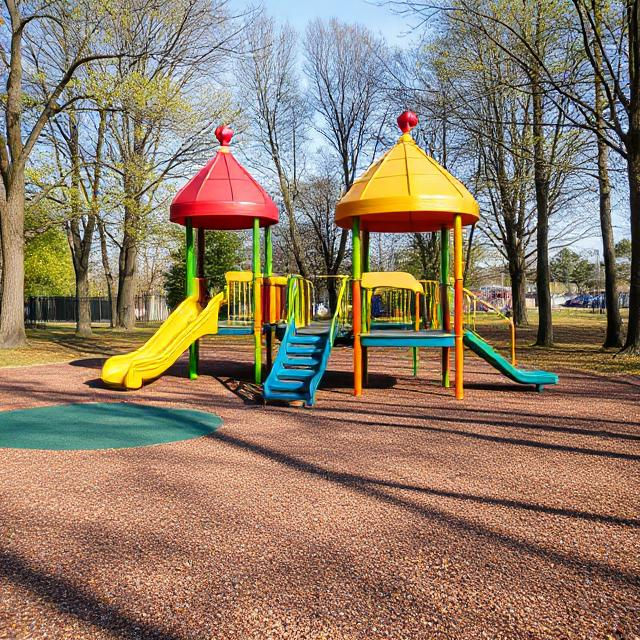We’re all lonely people
- Corinne (Well of Hearts)

- 6 days ago
- 10 min read

"Turn to me and be gracious to me, for I am lonely and afflicted" Psalm 25:16
If I was to say there is a health threat that is affecting all walks of life, what would you think it was? Lack of physical exercise or obesity? Well it is actually loneliness. An article from the Guardian says that the World Health Organisation has declared loneliness to be a pressing global threat. A US surgeon general, Dr Vivek Murphy, said the effects are equivalent to smoking 15 cigarettes a day. Loneliness is linked to a 50% increased risk of developing dementia and increased risk of having a stroke.
Hearing stats like that are shocking and depressing but sadly the rise in loneliness isn’t surprising to me. This is because we are the most connected we have ever been due to the internet, but at the same time, we are the most lonely we have ever been. 15% of British people say they have no close friends and sadly 28% of Brits say they have no friends at all. We can’t even blame this on being a Gen Z, Millennial, European or American issue. The research shows that this is a threat that affects young and old and spreads across locations. The rate of social isolation (loneliness) for older people is one in four. This rate is similar for all regions of the world. Between 5% and 15% of teenagers worldwide say they are lonely. 5.3% of European teenagers and 12.7% of African adolescents are lonely.
I personally think the percentage of teenagers who are lonely is higher than the research shows. I say this because the charity Childline found that, out of the 5,000 online or telephone counselling sessions they had with children and teenagers, the most common issue was loneliness.
So why are we so lonely?
Here are the reasons why I think the most “connected” group of people in history are so lonely:

Smart phones
"Let your conversation be always full of grace, seasoned with salt, so that you may know how to answer everyone". Colossians 4:6
Social media and messaging apps like WhatsApp have replaced real connection. There are positives to social media such as having a connection with family members who live abroad, so you don’t miss out on seeing your cousin Bethany's wedding photos. Another positive is finding an outlet to learn more or discuss a special interest. However, a big negative is that no matter how many “friends” or “followers” you have, it will never replace the face to face interactions that our minds need. We are social creatures by nature, but this social interaction needs to also be in person.
Professor Albert Mehrabian claims that 55% of communication is done through our body language and 38% is through our tone of voice. So that leaves 7% of what we say through spoken words. Note he said spoken words, this is not the comment section of TikTok, X or Instagram, text messaging or WhatsApp. Our most dominant way of communicating is not actually allowing us to communicate and understand each other effectively! There are so many nuances that will be missed by someone's comment or message that would be picked up if you were in the same room as them.
People now choose to have their phone set to “do not disturb” because they don’t want to speak to anyone, they only want to “speak” via text message. If we are actively depriving ourselves so that we do not allow ourselves to communicate in real time through our body language, tone or spoken words as we naturally were designed to, then it’s not surprising that we are a society of lonely people.

Change in children's play
“And the streets of the city shall be full of boys and girls playing in its streets”. Zechariah 8:5
I’m an 80’s baby and 90’s kid. My childhood involved knocking on my friend's door and asking their mom if they could come out and play. We played on the council estate playing hopscotch, made up games, rollerblading or riding our bikes. We didn’t know what we were going to do when we got outside. We didn’t know who else was going to be out but we knew it was going to be fun.
Children now do not play out, so they have missed out on unstructured playing and learning how to make friends with other children by virtue of them both happening to be playing out at the same time. Children now have to rely on their parents setting up highly structured play dates for them. The annoying part about these play dates is that they are usually detailed to the nth degree, removing children's creativity to develop relationships organically. Also, an annoying aspect is that the parents have to like each other for the play dates to even be organised, because realistically which parent wants to spend two hours with another parent they don’t get on with?!
Growing up, me and my friends didn’t care if our parents got on because they weren’t outside playing with us! As a result, modern children are forced to play with someone that they probably wouldn’t choose to hang around with or even like but are forced to by default because the parents get on. This isn’t helping children develop the idea of what a healthy friendship is and quite frankly could be a lonely experience.
Lack of community
“And let us consider how we may spur one another on toward love and good deeds, not giving up meeting together, as some are in the habit of doing, but encouraging one another”. Hebrews 10:24-25
People move around a lot more for various reasons. Over the past two decades the number of people attending university has steadily increased. This will include more people moving away from home for university and maybe never returning to their home town or city for work. As mentioned before, the reliance on phones for communication is going to make it harder for people to go out in a new city and make in-person friends.
People moving around for education and work means extended families are no longer living near each other. This may be a good thing if you have a toxic family! However, if you get on with your family then not being able to easily see your parents every week or go out for a meal with your cousin can create loneliness.
Also historically in the UK, community used to be based around church on a Sunday, this helped form a community around that. Church membership is in decline year on year, so a once thriving community is dwindling.
Transactional relationships
“Do nothing out of selfish ambition or vain conceit. Rather, in humility value others above yourselves, not looking to your own interests but each of you to the interests of the others”. Philippians 2:3-4
I really believe the high consumption of social media, especially influencer culture is changing the way we navigate relationships and is adding to loneliness. Influencers are selling something, it could be a physical object, a course or their brand. Whatever it is, their “relationship” with their followers is self-invested and insular. The unspoken arrangement is to watch my videos and leave comments because I want to sell you something or make money from engagement (watch time, views and comments), i.e. transactional. This transactional mindset is filtering into the followers view of friendships and inevitably wider society.
Also the rise in new age spirituality i.e manifestations and being your own god again gives rise to an insular and selfish society which does not feel accountable to any higher being or anyone.
The rise in selfishness and transactional relationships means you now have “friends” who only contact you when they want something from you, be it to get advice from you, to get you to buy their latest side hustle product or service, or to get you to do something for them. It’s not just to see how you are and spend time with you because they like your company.
How do we overcome this issue of loneliness?

If you have friends locally then make an effort to meet up in person regularly.
“A friend loves at all times”. Proverbs 17:17
The busyness of life can cause us to neglect meeting up with friends. We think "I’ll arrange a meet up tomorrow", but tomorrow turns into next week and next week turns into 3 months. When you finally meet up, you enjoy it but then it doesn’t happen again for another 6 months! Not only is it enjoyable to regularly spend time with friends you love and trust, but research shows that adults with strong social connections have a lower risk of depression, high blood pressure and unhealthy weight. So not only is regularly seeing your friends fun, it's also good for your health!

Make an effort to see family
“Offer hospitality to one another without grumbling”. 1 Peter 4:9
It’s important to acknowledge that people have experienced trauma at the hands of their family or do not feel that they fit into their family dynamic. However, if you are fortunate enough to have a loving family who are not toxic towards you, then spending time with your family could help you feel less lonely.
If they live far from you, then even if it is an occasional visit due to distance, it could still help you. This is because these visits and connections could help to remind you that you are loved and you have a place where you belong.
Actually contact someone because you actually care how they are!
“Share with the Lord’s people who are in need. Practice hospitality”. Romans 12:13
Earlier I mentioned transactional relationships. If we all contacted someone because we genuinely care about what they did that day, how the job interview went or, surprise surprise, because you just actually care about how they are, then we would actually build stronger connections. This is because you would know that the person has a genuine interest in you and not what you can offer them. Feeling that the “friendship” or “acquaintanceship” contact only ever happens on the basis that you give them something, whether it’s a favour, advice, buying their product, attending their event or sponsoring their latest fundraising project is only going to make you feel more lonely because your true essence is being ignored.
Join a group/ start a hobby
“We have different gifts, according to the grace given to each of us” Romans 12:6
If you're part of the 28% of Brits who have no friends or you would like to expand your friendship group so it better reflects you then seriously consider joining a group or club. There are groups for almost any interest. If you already have a hobby then find a group that is about your hobby.
If you would like to start a new hobby then joining a club based on something you would like to do is not only fun but puts you in a place with like minded people who you see weekly. Great friendships could form from these clubs.
Another type of group to help you overcome your loneliness are support groups. We all go through hard times, some more than others. Support groups can be for a range of reasons. There are groups for health conditions - including mental health, traumatic events like bereavement or abuse or groups for carers. Going to a support group could help you feel that you aren’t alone with your experience.
Use the phone less
“For we brought nothing into the world, and we cannot take anything out of the world”. 1 Timothy 6:7
Even though phones were designed as a means to communicate, they have now become counterproductive. When at social events when people feel self conscious they use their phones as a barrier to avoid conversations. They scroll apps to avoid eye contact with others in the room. Social media apps allow us to see our friends, family and work colleagues highlights reel. I say highlights because they don’t post about the argument they had with their husband five minutes before the happy family photo was taken. These highlight reels allow us to compare our lives to theirs. If we feel we are not where they are, this can increase the feeling of loneliness.
Try a small goal of reducing your phone time by a few minutes each day. During times when you aren’t using the phone maybe go for a short walk and look around taking in the world around you. Or use that time to do that hobby you learned at the group you joined. Or visit the local library and learn something new from one of their information books. Then when you see your friends or the new friends you have made at the group you joined, you’ll have some fun facts from your library book as a conversation starter!

Leave the house and go to the same place regularly
“Whether you turn to the right or to the left, your ears will hear a voice behind you, saying, ‘This is the way; walk in it.’” Isaiah 30:21.
If you aren’t ready to take the leap and join a club then maybe try picking a cafe, coffee shop, the gym, park or a place of worship like church… and going there regularly. The routine of going somewhere that isn’t your workplace and being around people may help you reduce the feeling of loneliness. Who knows? As your face becomes familiar to people, they might strike up a conversation with you, or you with them.
Encourage children to join groups and arrange play dates in environments that allow unstructured play
"Start children off on the way they should go, and even when they are old they will not turn from it". Proverbs 22:6
The key to any change whether it is personal or societal is early intervention. The earlier we tackle a change, the better the outcome. If we encourage our children or younger siblings, nieces and nephews to join groups then they get used to being part of an in-person community. Therefore when they become adults the idea of interacting with friends face to face isn’t an alien concept to them.
We know the days of children playing out on the street, asking if Sarah can come out to play and making up their own entertainment are long gone. Children' s play is now usually heavily structured with the parents deciding who their child is going to play with (like I said earlier, based on if the parents like each other. It's stopped being about the actual children now). The parents then arrange the play date and parents decide the paid structured activity the children will do. However, the key to building relationships is by children finding out about each other organically.
Children developing unstructured play can help them with problem solving and conflict resolution, which is harder through parent planned play sessions at laser quest or the arcade. When there isn’t a parent to solve the issue that arises during unstructured play then children have to sort it out themselves. This will equip them, when they are older, to know how to handle conflicts with their adult friends because they have known how to deal with this from childhood. Now for your child's next play date, why not suggest a park where the children can run around playing tag, imagination games, playing football or building a den so they really get to know their friends through unstructured play?
There is a real need for community, as we are social creatures. Prioritising friendships, taking time to see extended family, visiting a place of worship, attending bible study and starting new hobbies are some of the ways you can build your community. They say there is safety in numbers, I think that the loneliness issue shows that this is true.




